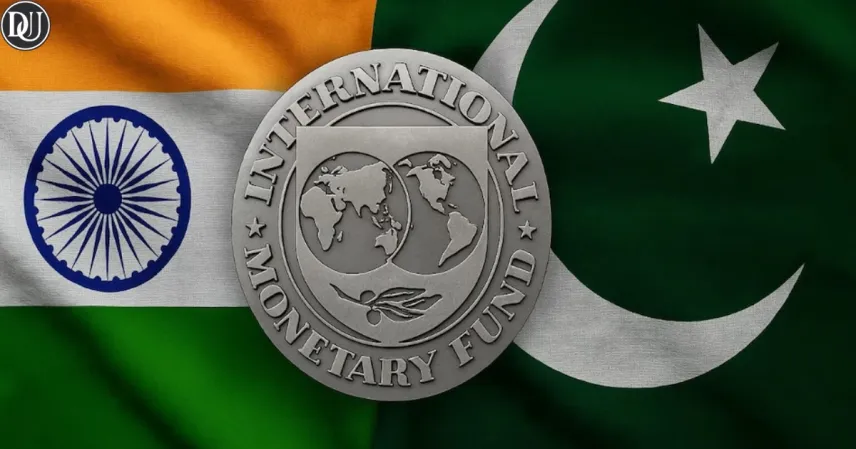New Delhi/Srinagar, May 10: Former Jammu and Kashmir Chief Minister Omar Abdullah has strongly criticized the recent IMF loan to Pakistan, calling it a move that could further escalate tensions between India and Pakistan. The International Monetary Fund (IMF) has approved a $2.4 billion support package for Pakistan at a time when border hostilities are at a high, following India’s counter-terror operations in response to a deadly attack in Pahalgam.
The IMF loan to Pakistan includes two major components: a $1 billion disbursement under the Extended Fund Facility (EFF) and a $1.4 billion arrangement under the Resilience and Sustainability Facility (RSF). While the IMF claims the package is intended to support Pakistan's economic recovery and climate resilience, the timing of the assistance has sparked political controversy in India.
Omar Abdullah expressed concern over the IMF loan to Pakistan, stating that such financial support could indirectly fund military aggression. In a social media post, he questioned how global financial bodies expect peace in the region while "reimbursing" Pakistan for the "ordnance used" in violent cross-border activity in areas such as Poonch, Rajouri, Uri, and Tangdhar.
India abstained from the vote approving the IMF loan to Pakistan, highlighting the potential risk that the funds could be misused to support terrorist activities. Indian officials noted Pakistan's repeated history of seeking IMF assistance, pointing out that the country has been under IMF programs for 28 of the past 35 years.
The IMF loan to Pakistan under the EFF was praised by the lender as a reflection of Pakistan’s economic reform efforts and stabilization strategies. So far, Pakistan has received about $2 billion under the current $7 billion EFF program. The RSF portion of the IMF loan to Pakistan is aimed at helping the country build climate resilience and manage environmental risks, particularly in the face of natural disasters like floods and droughts.
Despite assurances from Pakistani Prime Minister Shehbaz Sharif that the IMF loan to Pakistan was finalized before the latest tensions and would not be used for military purposes, the Indian government remains skeptical. Officials in New Delhi argue that international funds should come with stricter accountability mechanisms, especially in politically and militarily volatile regions.
The backlash surrounding the IMF loan to Pakistan has intensified following India’s Operation Sindoor, a retaliatory strike targeting terror camps across the border. As regional instability grows, so do calls for the international community to reassess how such funding could impact regional peace and security.
The IMF loan to Pakistan has now become a focal point in the broader discussion about aid, terrorism, and accountability. Critics argue that the IMF loan to Pakistan sets a dangerous precedent by enabling a country facing serious allegations of sponsoring cross-border terrorism to access large-scale international financing.
With tensions at a boiling point, the controversy over the IMF loan to Pakistan highlights the complex intersection of geopolitics, economic support, and national security. Many Indian political figures and commentators are now urging a global reevaluation of the terms under which financial aid is granted to countries with active conflicts.
As debate continues, the IMF loan to Pakistan remains a contentious issue in both diplomatic and public circles. Whether it contributes to economic stability or further destabilizes the region is a question that will be closely watched in the coming months.










